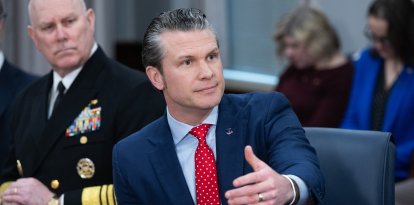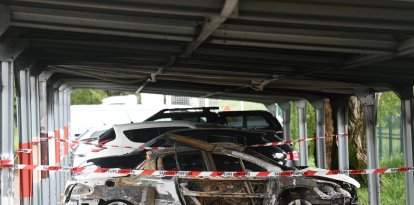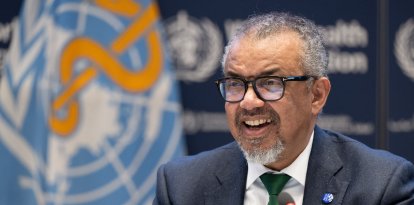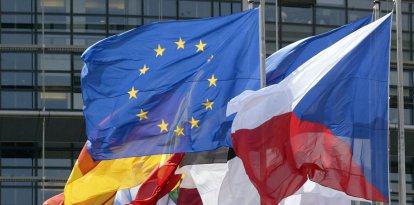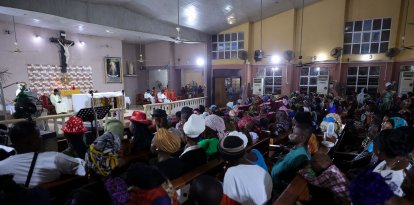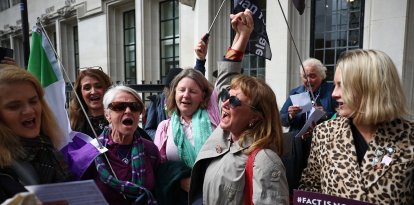Marco Rubio reaches immigration agreements and progress against China in Costa Rica
The secretary of state congratulated the Costa Rican president for showing firmness against the Chinese regime.
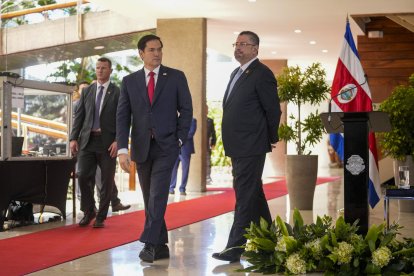
U.S. Secretary of State Marco Rubio (L) and Costa Rica's President Rodrigo Chaves after a joint news conference at the presidential palace in San Jose, Costa Rica on February 4, 2025.
U.S. Secretary of State Marco Rubio confirmed that Donald Trump's administration reached an agreement with the Costa Rican government on migration, drug trafficking and cybersecurity. He congratulated Costa Rican President Rodrigo Chaves on his exemplary stance toward China and its expansionist ambition.
Rubio arrived in the Costa Rican capital as part of his tour of Latin America. His main objectives are establishing migratory agreements and counteracting the influence of the Chinese regime in the region. Costa Rica is the third country he visits on his tour, after Panama and El Salvador.
Rubio announced the agreement from San José, after a meeting with President Chaves and his foreign minister Arnoldo André Tinoco and indicated that the Latin American country is not only a great "friend and ally" of the United States, but also a "model" to follow.
In a press conference following the meeting, Rubio stated that the Trump administration will expand its support for the Costa Rican government in terms of immigration security, assisting the Federal Bureau of Investigation (FBI) and the Drug Enforcement Administration (DEA). The secretary of state detailed how both agencies could work with Costa Rican authorities to prevent the entry of drug traffickers and terrorists.
"Costa Rica is an advanced economy where there are opportunities, you have seen individuals pass through its borders who are not from the continent, but from Africa or the Middle East and have been able to identify several people with links to terrorism who were destined for the United States, so we are going to work with biometric systems and data in real time to identify them and prevent them from doing harm here, to us and any other country in the north," Rubio explained.
In the same press conference, President Chaves stated, "we managed to outline the route of continued collaboration with the new Administration of Mr. President Trump." Likewise, the president added that "we reached important agreements on illegal migration, we also understand that Costa Rica is one of the most prosperous societies in Latin America and is a destination for migrants. We want to strengthen the fight against organized crime, which Mr. Secretary offered to continue to support and help us."
Firmness against China
In addition to the statements on the immigration issue, Rubio congratulated and thanked Chaves for his stance against China, which was to prevent Chinese telecommunications companies from participating in public tenders to develop 5G technology. Likewise, the secretary of state applauded the "firmness" of Chaves' government, highlighting that "when you confront companies that are not safe and that are backed by governments like China's, which likes to threaten, sabotage and use economic coercion, they punish you."
Positive balance
The agreements reached with the Costa Rican government show a more than positive balance in Rubio's tour of Latin America after the Panamanian government took "important steps" in its distancing from the Chinese regime in the midst of the diplomatic crisis between the United States and Panama over the Chinese canal.
Similarly, the secretary of state's visit to El Salvador left great results after the president of this country, Nayib Bukele, reached an agreement with the administration in which he would accept not only illegal immigrants but also U.S. criminals.
RECOMMENDATION


